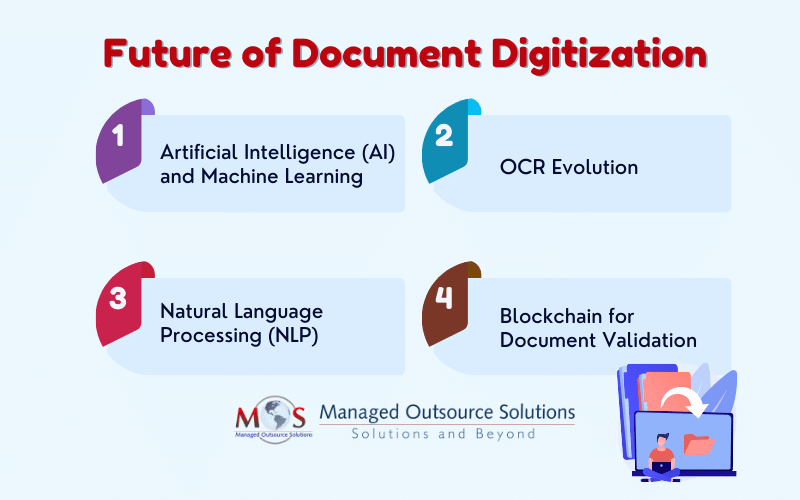In today’s digital landscape, harnessing data is essential for making informed decisions and refining strategies, no matter the industry. Document conversion services and digitization play a crucial role in law enforcement and are equally important for retrieving historic records in libraries. In other words, they are valuable for preserving current documentation and accessing past records.
How Digitization Supports Law Enforcement
Large stacks of paper records are challenging to manage in any setting and can be especially complex for law enforcement agencies. Digitizing paper documents can help these agencies to better address crime, improve efficiencies, and service delivery to build trust with their communities.
Digital records and evidence are increasingly integral to modern court proceedings. A Thomson Reuters article notes that this trend is driven by the widespread use of body and vehicle-mounted cameras in law enforcement and the fact that over 85% of U.S. adults own smartphones. Digital records also include social media histories, cell phone records, and CCTV video footage.
Data and document conversion for law enforcement agencies can optimize operations, improve efficiency, promote security, and drive compliance with regulations. Document digitization promotes accurate and organized recordkeeping, which is vital for police departments and law enforcement agencies. Electronic documents simplify sharing, access, and storage, improving recordkeeping and coordination among agencies, and enabling faster response times.
- Efficiency: Digital records are easily searchable and retrievable, minimizing labor costs and storage requirements.
- Consolidation: From photos and videos to reports and evidence, all types of records can be consolidated into one easily accessible digital format sand stored securely in the system.
- Evidence conservation: Scanned documents can be securely stored, ensuring their integrity and long-term availability.
- Teamwork: Digitized files can be quickly shared between departments and agencies, allowing team members immediate access to the latest information. This facilitates collaboration and improves outcomes in cases requiring input from multiple agencies.
- Security: Digital records can be safeguarded through encryption, access controls, and regular backups.
- Compliance: Digital records help law enforcement agencies adhere to the Criminal Justice Information Services (CJIS) Security Policy, ensuring regulatory compliance.
- Record sharing with judiciary systems: Evidence stored on digital systems can be crucial to optimizing record sharing between law enforcement and judiciary systems
Due to the size, complexity, and volume of digital records, law enforcement agencies are moving from on-premises servers to cloud storage solutions.
Digitization to Preserve Historical Documents
Libraries and archives across the nation have digitized millions of manuscripts, newspapers, and other valuable documents. In May, the National Archives and Records Administration (NARA) announced a new multiyear agreement with Ancestry to digitize, index, and publish tens of millions of historical United States records, previously unavailable online.
The process of digitizing manuscripts involves scanning them and converting them into searchable files by utilizing technologies such as Optical Character Recognition (OCR). Digital archiving is necessary for both preservation and easy accessibility. Digitized documents can be distributed through the internet, making them available for historians, researchers and the general public.
Digitization of manuscripts:
- Allows multiple users to access the records from anywhere, any time.
- Supports research and education.
- Helps in dissemination of knowledge and awareness about culture
- Enables preservation and conservation of valuable data for future generations
- Facilitates management and preservation of manuscripts
- Reduces handling and use of fragile original material
Future of Document Digitization
The landscape of digitization is undergoing a rapid transformation, driven by groundbreaking technologies. These advancements are not only reshaping how documents are digitized but also unlocking new levels of value from them.
Artificial Intelligence (AI) and Machine Learning: AI and machine learning are revolutionizing the field of document processing. Intelligent Document Processing (IDP) solutions leverage sophisticated algorithms to classify various document types, extract key information, and even summarize content.
OCR Evolution: Modern OCR systems can recognize a wider range of fonts, differentiate between various layouts, and correct distortions caused by the scanning process. This means that a scanned, handwritten note can be as searchable and accessible as a typed report, bridging the gap between manual and digital inputs.
Natural Language Processing (NLP): Beyond simply recognizing words, understanding their context is essential. NLP enables software to grasp sentiment, semantic meaning, and even the intent behind the content.
Blockchain for Document Validation: In a world plagued by misinformation and counterfeit documents, validating authenticity is paramount. Blockchain technology offers a solution to this problem. By providing a secure, immutable record of document creation and transmission, blockchain can help ensure the integrity and authenticity of digital documents.
Law enforcement agencies, libraries and other entities can partner with a document scanning company to convert their data and document into electronic format. Experienced companies work with the latest technologies to provide high-quality, secure and tailored document conversion solutions.
Streamline your operations with document digitization!





